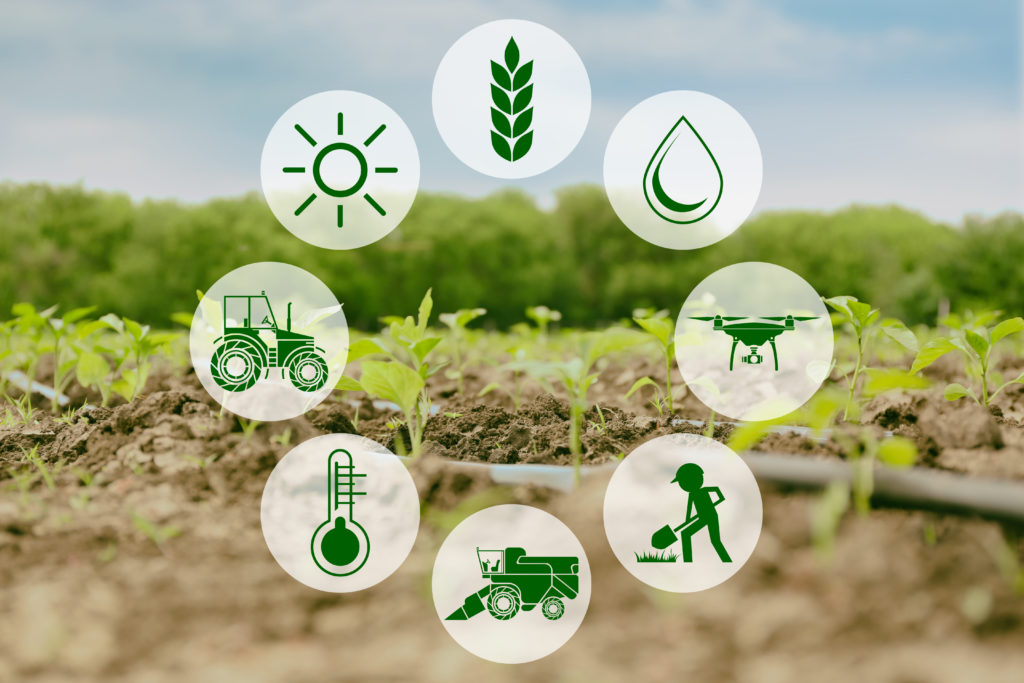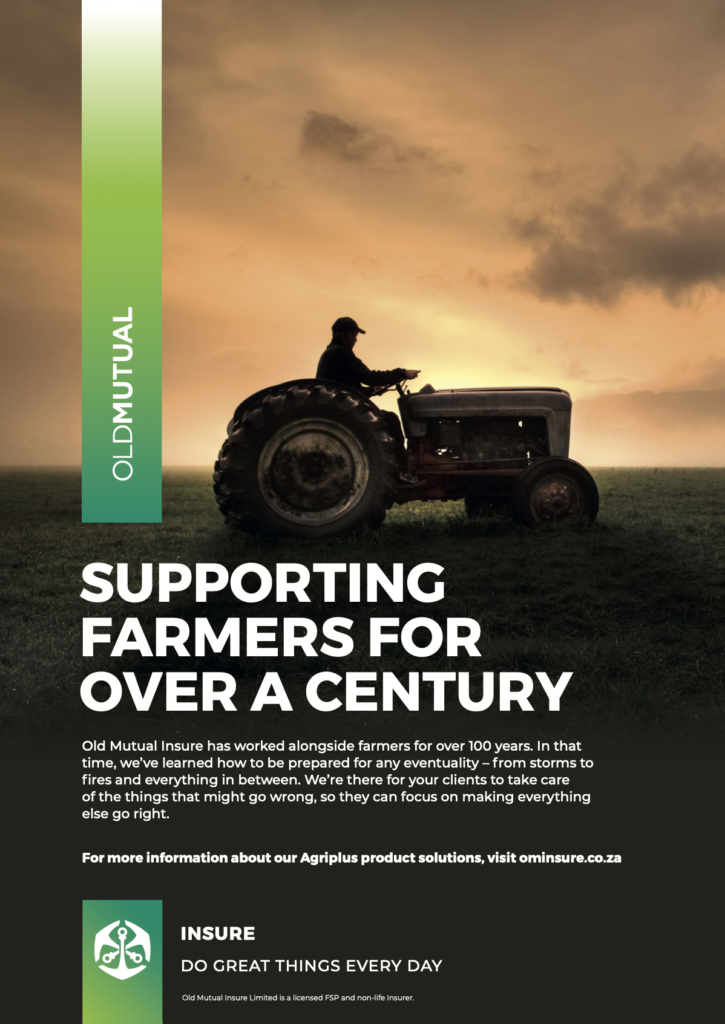
“South Africa’s agricultural sector has expanded notably over the past decade and is currently enjoying another good season”.
Liza De Beer
Product Development Manager, Old Mutual Insure
The Covid-19 pandemic has brought new appreciation for the pivotal role that South Africa’s agriculture sector plays. The pandemic has also helped people to have a new appreciation for what farmers do every day and to start thinking about where their food comes from.
Last year, the agriculture sector performed exceptionally compared to using, and the latest gross domestic product (GDP) data released by Stats SA confirmed South Africa’s agricultural economy is in good shape.
Notwithstanding challenges, unpredictability and dependencies experienced across the value chain, and drivers involved when it comes to the complexities of sustainable farming, food security and climate change, agriculture is anticipated to be a key role-player of economic growth and recovery.
A wealth of work has been done over the past few months and input has been provided by various role-players on how to address these challenges.
Food demand
Sustainable farming practices are a high priority not just in South Africa, but as a global issue. Farmers need to increase production to help feed a growing local and global population and this has never been so critical and challenging as it is today.
Consumer trends
Healthy eating habits and a healthier lifestyle are top of mind for many consumers. They are interested in where their food comes from and becoming more conscious about food safety, the content and quality, as well as the impact on the Earth.
Transparency is important, as consumers increasingly ask how and where their food is produced. This means that role players in the agriculture and food value chain are under pressure to improve the traceability of the food and to also share more information about it.
Environment and natural resources
There is also an increased focus on the use of natural resources and technology to optimise production while reducing the impact on Mother Earth. This includes the need for sustainable solutions to respond to water and electricity shortages by promoting innovative practices.
In short, the long-term health of the agricultural sector relies more and more on sustainable farming, with farming practices that is environmentally friendly.

The use of data and technology
Technology has completely transformed agriculture and the continued use of new technology and data will help the agricultural sector to modernise at an even faster pace.
Adopting technology and the use of data has become very important, especially in the wake of the pandemic. I believe that the quick progression of technology adoption has not only brought about a new mindset but also resulted in farmers who welcome the future with an open mind by giving old and new technology a chance.
The application of advanced technologies such as artificial intelligence (AI), remote and geospatial sensing, machine learning (ML), unmanned aerial vehicles (UAVs), biotechnology, the Internet of Things (IoT) and Internet of Behaviours (IoB) all have the potential to transform the agricultural sector and to address emerging challenges and needs.
Skills shortage and new skills required
South Africa has a highly diversified and market-oriented agricultural economy, but overall, South Africa is facing a shortage of skills in the agricultural sector, especially in one of the important focus areas, namely the ability to fix the environment.
The recruiting and development of the next generation of farmers and agricultural specialist across the value chain should be a priority for the next decade as food security in an ever-increasing global population continues to be a major concern.
In the face of this changing agricultural landscape, digital literacy and technology skills are essential for innovation to address emerging challenges.
Key driver of economic growth
Agriculture and food value chains are among the most complex sectors in the world and important drivers of economic growth and recovery.
That is why we have great respect and appreciation for producers, various role-players in the value chain and the agriculture sector’s valuable contribution, sometimes under very challenging and difficult circumstances.


